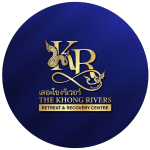
Mental illness encompasses a range of health conditions that involve changes in a person’s emotions, thinking, or behavior, which may…
Proven Drug and Alcohol Addiction Recovery Program

Proven Mental Health Issue Recovery Program

One on One Therapy

Group Therapy

Holistic Program

Care Farming Program

Discharge planning and Aftercare Program
Sober house mountain view



#Addicion Treatment
Addiction is a condition where individuals cannot stop using a substance or engaging in a behaviour despite harmful consequences. Our Thailand facility offers top-notch addiction treatment services.
All addictions share two key traits: they are maladaptive, causing problems rather than assisting with coping, and they are persistent, with individuals continuing the behaviour despite negative outcomes. Addiction is a disease that can affect anyone at any stage of life.
Research shows a high prevalence of co-occurring mental health issues in individuals with addiction. It is crucial to address both conditions simultaneously for a successful recovery.
The term ‘addiction’ covers various manifestations of a consuming relationship with substances or activities altering mood. Commonly associated addictions involve alcohol, drugs, including prescription medications (such as stimulants like Adderall, cocaine, etc.; depressants like alcohol, etc.; opioids such as heroin, etc.; inhalants, dissociatives like Ketamine, etc.; hallucinogens, and cannabis). The concept has expanded to include process addictions like gambling, sex, work, technology, shopping, eating, and exercise. Left untreated, any addiction can have extensive repercussions, affecting not only the individual but also their family, friends, and community.


Addiction is a multifaceted disease with various contributing factors such as family history, genetic predisposition, environmental influences, mental health issues, and brain function. It manifests gradually and isn’t solely triggered by occasional substance use or certain behaviours. Seeking treatment to address the root cause and any co-occurring conditions is crucial for recovery. Addiction often serves as a coping mechanism for underlying issues and can escalate if left unattended. Identifying and addressing these factors through support and therapy is essential in overcoming addiction.
The signs and symptoms of addiction include inability to stop despite negative consequences, changes in mood, denial, risky behaviours, preoccupation with substance, neglecting activities, secrecy, increasing need for substance, relationship problems, declining health, financial troubles, withdrawal symptoms, and more. Acknowledging these signs early on and seeking help is crucial as addictions are treatable with effective treatments available.


Addiction is a complex condition that requires individualized treatment. Engaging in treatment programs increases chances of recovery and prevents relapse. Effective approaches include therapy, addressing mental health issues, medication, and community support. Treating addiction and co-occurring mental illness together is crucial. Tailored treatment plans consider the person’s needs and involve family. Programs combining therapy and medication are recommended, along with addressing additional needs like medical and legal issues. Successful treatment considers the individual’s age, gender, and culture. Support for mental health issues and medically-assisted detox are important components of comprehensive treatment programs.

Mental illness encompasses a range of health conditions that involve changes in a person’s emotions, thinking, or behavior, which may…

The condition known as drug addiction, or substance use disorder, entails a lack of control over or ability to moderate…

Alcohol addiction, also known as alcohol use disorder (AUD), is a severe condition where individuals lose control over their drinking…
Drug addiction is a complex issue due to the wide variety of substances people can become addicted to, with effects varying for each individual. The types of drugs commonly associated with addiction include depressants (such as alcohol, benzodiazepines, tranquilisers, Xanax, Valium), stimulants (like amphetamines, cocaine, methamphetamine, ecstasy/MDMA), opioids (strong painkillers like heroin, morphine, codeine, Vicodin), cannabinoids (including marijuana, hashish, K2/spice), inhalants (such as cleaning fluids, glues, solvents, aerosol sprays, nitrous oxide), hallucinogens (like LSD/acid, PCP, ketamine, mushrooms), prescription drugs, and over-the-counter drugs (like diet pills, sleep aids, cold and flu remedies).
Polydrug use, the practice of mixing drugs or taking multiple drugs simultaneously, is common among those self-medicating. This behavior can intensify or prolong the pleasurable effects of a drug, help balance or control negative effects, or substitute desired effects. However, combining drugs in this manner is highly risky and can lead to unpredictable consequences.
Polydrug use significantly increases the likelihood of addiction by multiplying the rewarding effects of drugs in the brain. While polydrug use poses challenges to recovery, with the appropriate treatment individuals can acquire the knowledge, confidence, and skills necessary to break free from addiction and build a more stable and fulfilling life.
Individuals who develop drug addiction typically progress through distinct stages. Understanding these stages can assist in identifying a problem and pursuing assistance promptly. The stages are as follows: Experimentation, Regular use, Problem or risky use, Dependence, and finally, Addiction.
It is important to note that not all individuals who experiment with drugs will evolve into regular users and navigate through these stages. Various factors such as genetics, personality traits, family history, personal circumstances, and the specific characteristics of the drug being used contribute to the likelihood of addiction. While each person’s journey is unique, early recognition of warning signs and seeking help from professionals can greatly enhance the chances of reversing the negative effects and achieving a complete recovery.
Various factors contribute to the development of drug addiction. Individuals may initially use drugs for recreational purposes, experimentation, escapism, or to alleviate pain. Mental health conditions, including untreated depression or anxiety, can also be a catalyst for drug use.
While not everyone who experiments with drugs will become addicted, there are numerous risk factors that can influence the likelihood of developing a substance use disorder. These include biological factors like genetic predisposition, psychological vulnerabilities such as personality traits and underlying mental health issues, as well as contextual factors like family history of substance misuse, poor coping mechanisms, trauma history, and societal pressures. Sociocultural and environmental factors like easy access to substances, socioeconomic status, and media influence also play a role.
Additionally, the addictive potential of the drug itself, such as heroin, cocaine, and painkillers, impacts the likelihood of addiction. Seeking support and treatment to address the root causes of addiction and any co-occurring disorders is crucial for achieving long-term recovery and well-being.
The effects of drug addiction encompass disruptions to nearly every organ in the human body, alongside modifications to brain chemistry and function. Various drugs showcase distinctive detrimental impacts, yet prevalent effects of a substance use disorder entail:
Physical
Mental
Social and behavioural
Recognizing the importance of seeking expert assistance and support is crucial, as the consequences of drug addiction can exacerbate without intervention, leading to adverse consequences in various aspects of our lives. By attaining sobriety, many of these consequences can be mitigated or undone. Optimal prevention of irreversible harm involves promptly seeking professional aid to address the addiction, thus enhancing our prospects for sustained recovery.
Drug addiction is considered a chronic disease, but it can be managed and treated with success. The intricate nature of the disease, coupled with the varied factors present in each case, implies that a singular treatment method that suits all addicts does not exist.
Current research indicates that a combination of tailored behavioral therapy and medications, referred to as medication-assisted treatment, is most likely to result in a successful recovery. This approach is customized to address an individual’s drug-use habits and associated medical, psychiatric, environmental, and social concerns.
Key components of effective addiction treatment include behavioral therapy, assessment and management of concurrent mental health issues, medication-based treatments, community support, and ongoing follow-up to prevent relapses. The duration of treatment necessary for addiction recovery will vary based on factors such as the severity of the condition, specific substances being abused, and any co-occurring mental health conditions present.
At the Khong Rivers Centre, we take pride in offering comprehensive intake assessments to cater to the specific needs of adults aged 18 and above seeking addiction and mental health treatment. Our admissions process begins with a meticulous intake assessment aimed at evaluating each individual’s readiness for change and understanding their dependencies and treatment motivation.
During this assessment, individuals will discuss their addiction or mental health history, prior treatment experiences, medical background, trauma history, and treatment goals at our facility. This detailed information allows us to craft a personalized treatment plan tailored to meet the patient’s requirements effectively.
Upon completion of the intake assessment and confirmation of the individual’s compatibility with our services, an intake/admission date will be arranged by our intake specialists.
Whether one is grappling with addiction, anxiety, depression, or trauma, our distinguished addiction treatment program at The Khong Rivers Centre is here to kickstart the journey towards recovery. Reach out to us today to gain insights into our addiction intake process, the customized programs we offer, and how we can support you or your loved one in embarking on a path to wellness.
Join us at The Khong Rivers Rehab centre, a leading addiction treatment rehab centre in Ontario. Start transforming your life today with our comprehensive and personalized addiction recovery programs.

Welcome to The Khong Rivers, Retreat & Recovery Centre, situated in the serene city of Bueng Kan, Thailand, stands as a distinguished destination for individuals seeking top-tier for recovery of addicion and mental health treatment. Our esteemed establishment is committed to nurturing holistic well-being, focusing on the intricate connection between mind and body
87 Nong Daen Subdistrict, Bung Khla District, Bueng Kan Province, Thailand, 38000
© 2024 The Khong Rivers. All Rights Reserved